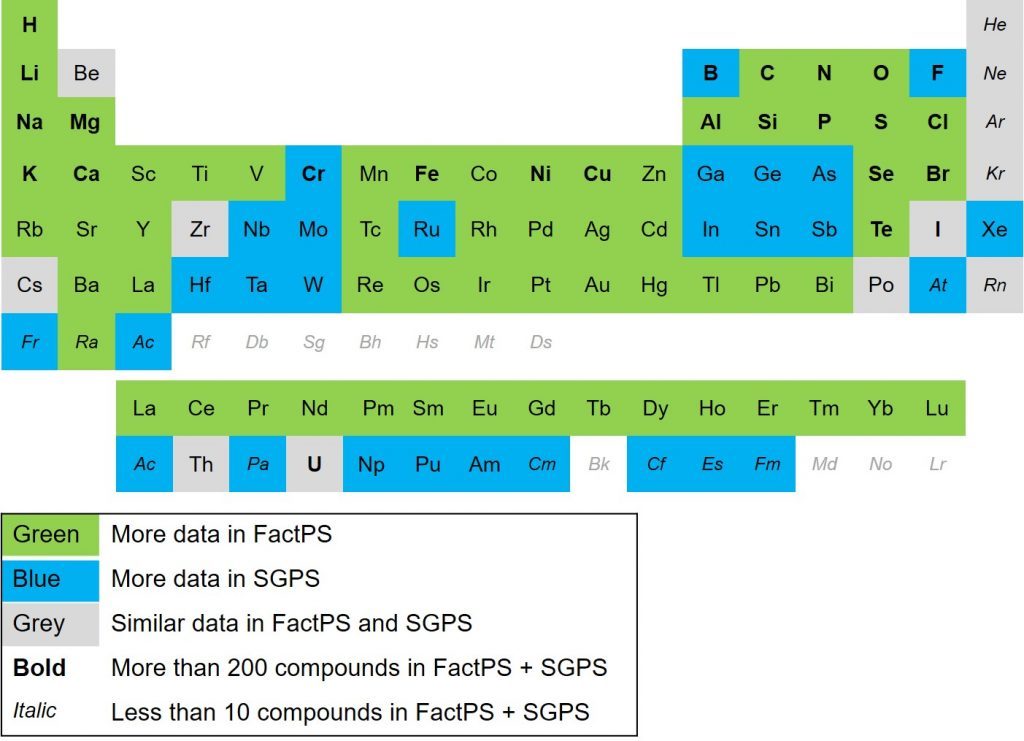I have been asked by a potential customer: “Do I need the Fact Pure Substances or SGTE Pure Substances database?” The answer is: It depends. The two databases are both collections of (normally published) thermochemical data. The Fact Pure Substances database FactPS is maintained by our co-developer of FactSage, Thermfact/CRCT, Polytechnique Montreal. It is generally compatible with the Fact Solution database package (FToxid, FTsalt…). The SGTE pure substances database SGPS is maintained by the Scientific Group Thermodata Europe (SGTE) independently from any other databases, meaning that compatibility with other databases (including the SGTE solutions database) is not ensured.
The Pure Substance databases are mainly needed for two purposes: First, the data for gas phase species is stored there. Second, they contain thermodynamic data for substances where complex solution models are not available. Opposed to solution databases, these databases do not allow for thermochemical treatment of solid or liquid solutions, as the names “Pure Substance database” already indicates. Having clearly stated the purposes, let’s have a look at the numbers:
FactPS contains 4869 compounds (or compositions) and 6912 phases (states).
SGPS contains 3842 compounds and 5751 phases.
Please note that one compound (e.g. Fe) can be present in several different phases (bcc, fcc, hcp, liquid, gas, aqueous), which is the reason for the difference in number of compounds and number of phases. It should also be noted that FactPS does contain data for aqueous species, which is not the case for SGPS.
These are only total numbers showing that FactPS contains more data. However, the question remains: Which of the databases contains more data for my application of interest? To help here, I did a short comparison for each element on how many compounds exist in FactPS and SGPS. This is graphically shown here:

There are only few blue regions where SGPS contains more data:
• Classical III-V semiconductors,
• some transition metals,
• a few compounds of interest to nuclear applications and
• gaseous Fluorides, e.g. of interest in CVD applications.
For all other applications, FactPS contains more data, so this is normally the database of choice.
You can find the list of all compounds in FactPS here and the list of all compounds in SGPS here.
Do you have a question concerning databases? Then please leave a comment or contact us!
